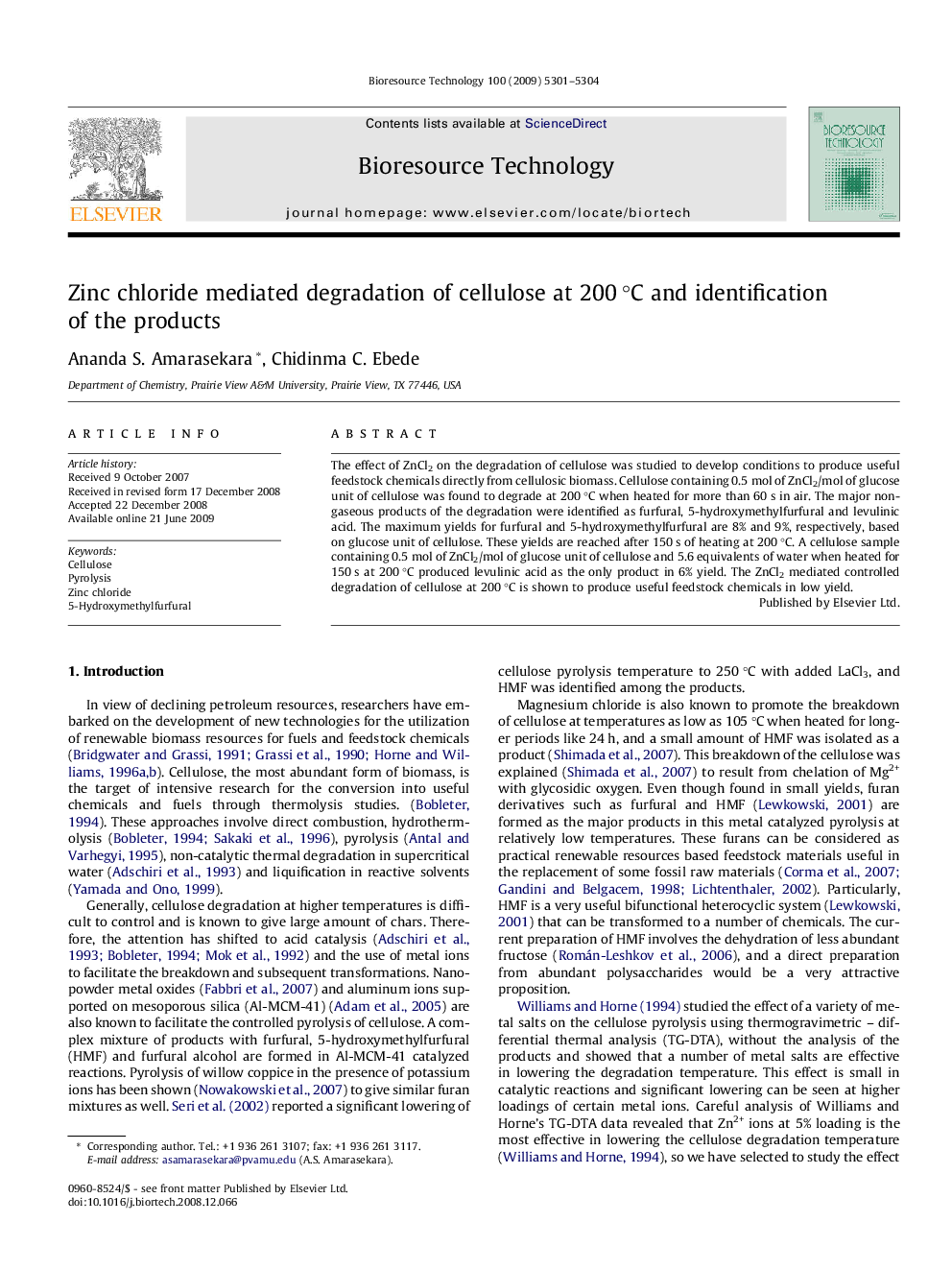| Article ID | Journal | Published Year | Pages | File Type |
|---|---|---|---|---|
| 684493 | Bioresource Technology | 2009 | 4 Pages |
The effect of ZnCl2 on the degradation of cellulose was studied to develop conditions to produce useful feedstock chemicals directly from cellulosic biomass. Cellulose containing 0.5 mol of ZnCl2/mol of glucose unit of cellulose was found to degrade at 200 °C when heated for more than 60 s in air. The major non-gaseous products of the degradation were identified as furfural, 5-hydroxymethylfurfural and levulinic acid. The maximum yields for furfural and 5-hydroxymethylfurfural are 8% and 9%, respectively, based on glucose unit of cellulose. These yields are reached after 150 s of heating at 200 °C. A cellulose sample containing 0.5 mol of ZnCl2/mol of glucose unit of cellulose and 5.6 equivalents of water when heated for 150 s at 200 °C produced levulinic acid as the only product in 6% yield. The ZnCl2 mediated controlled degradation of cellulose at 200 °C is shown to produce useful feedstock chemicals in low yield.
